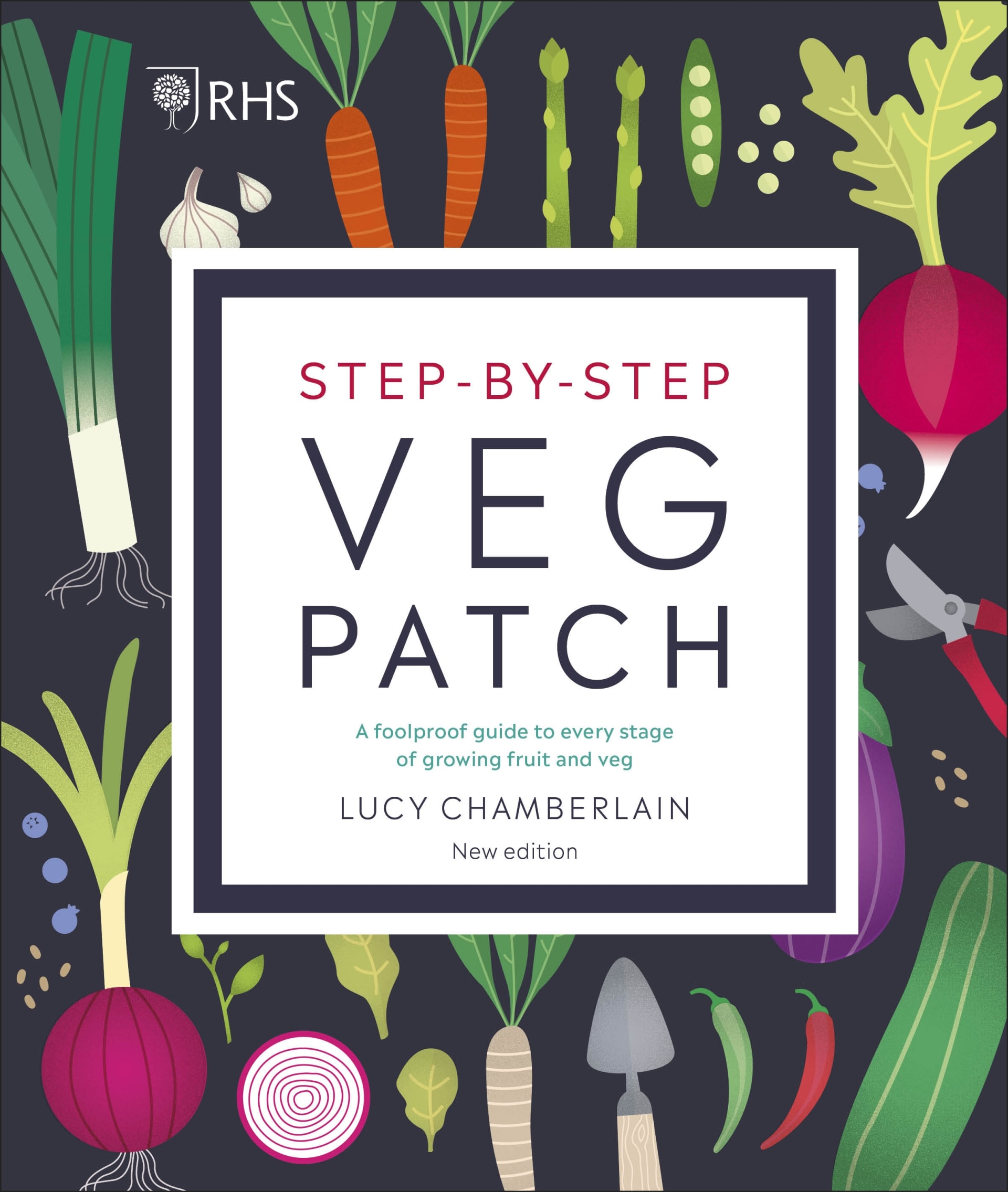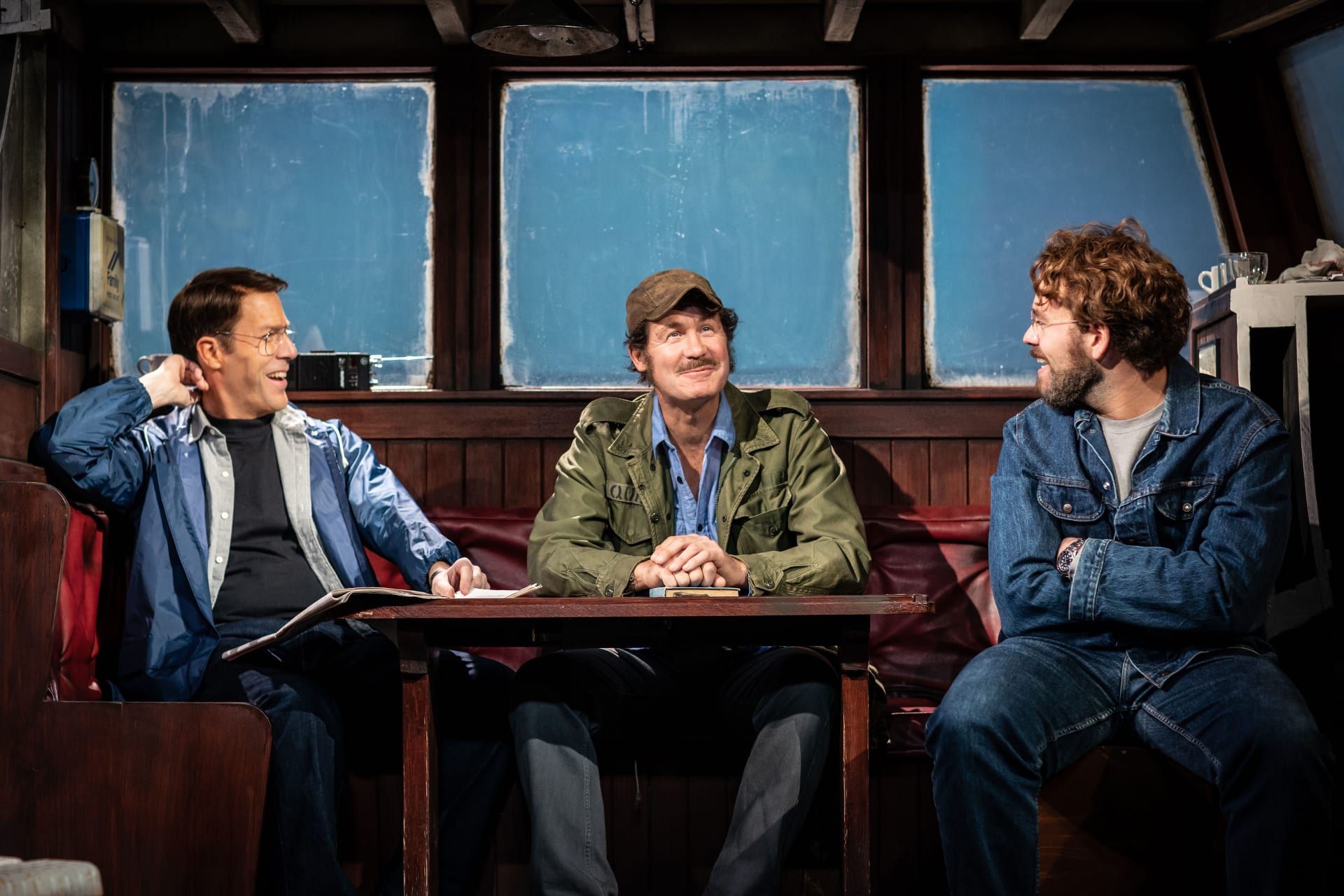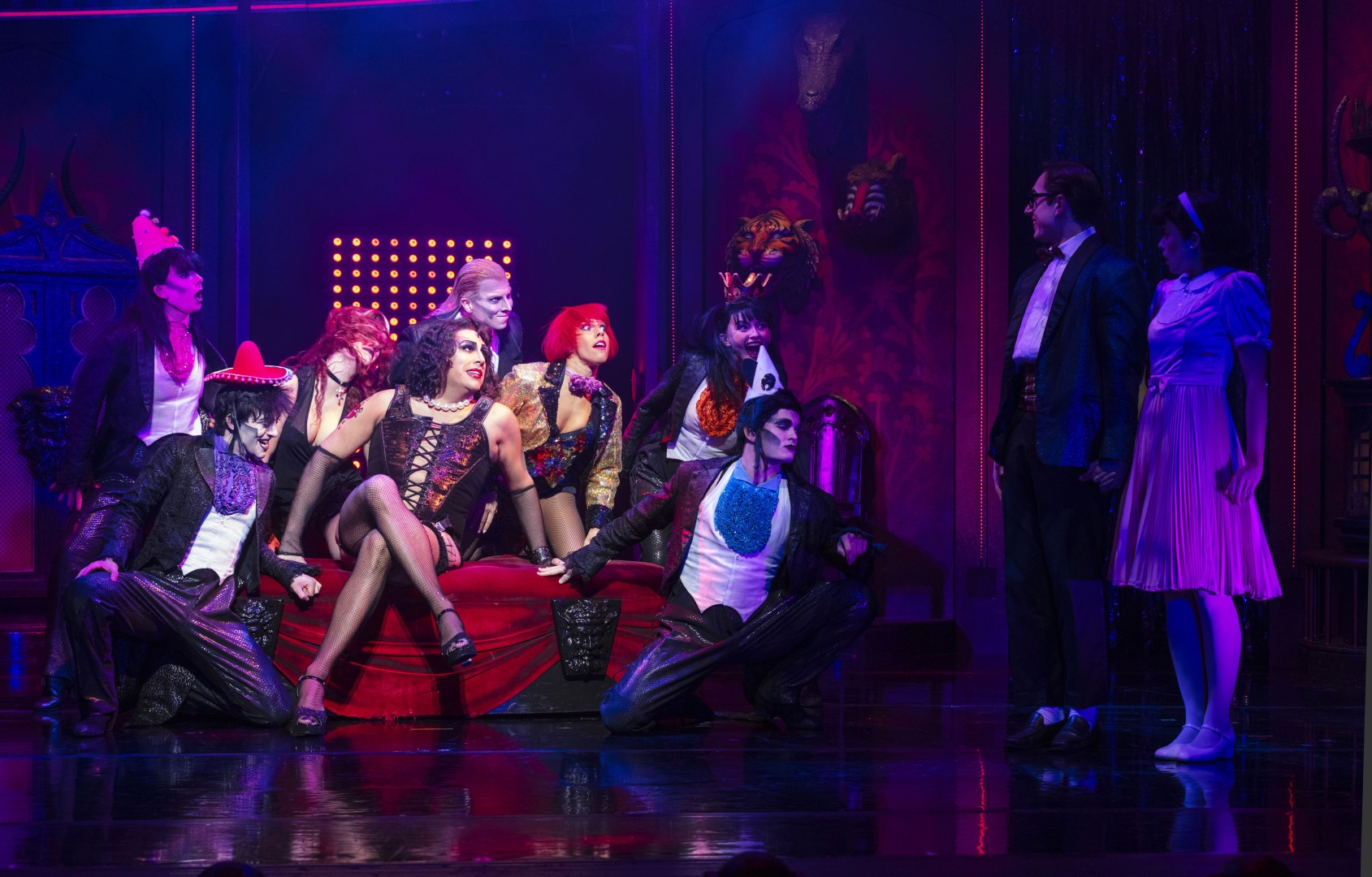Non-binary transgender commentator, Katy Jon Went spends half their year travelling the country for talks and training (we speak at the end of February, following a trip to Shrewsbury where one of their engagements was cancelled because the building was underwater). They’re based in Norwich though, where there’s “a very large and strong non-binary scene (as featured in the BBC’s Queer Britain series). Not only non-binary but also trans – we’re a small city but we’ve got ten transgender and non-binary support groups.” At Norwich Pride, each year, one can see dozens of gender identity flags, I’m told, and they know 200+ trans people in the city alone, where some 70+ people each year seek out NHS gender identity services.
However, “rather ironically”, they are a close neighbour of Linda Bellos, the so-called trans-exclusionary radical feminist (TERF). “You know who I’m talking about,” they laugh at my surprise. “It’s fine, I go around Linda’s all the time which messes with people’s conception [that] we must hate each other by definition.” Nine years ago, they attended an Equality Act training day led by Bellos, on “how to respect trans people based on the law. She was spot on and brilliant about it.” At the time Katy was out as trans but hadn’t completed surgical transition, a process through which Bellos and her then-partner would go on to totally support them. “Yet people have the image of her now as being transphobic as opposed to what I would call gender critical.”
The former Labour leader of Lambeth Council “regards gender the same way she regards race: as a man-made construct; race isn’t real, race is like the lines drawn on a map. Go back to the 19th century, early 20th century, everywhere from Afghanistan to the Balkans, Greece, Macedonia and the Middle East is continually having the lines of their nationalities and countries redrawn. Then you have everyone from Bedouins to Roma regarding those lines as irrelevant, saying, ‘well, we’re nomadic peoples. Who went and drew these lines?’” Their neighbour recognises her sex (like skin colour) as something she was born with, but views “gender as another man-made construct, something invented – almost – by men to oppress women on the basis of their sex.”
Bellos was sceptical of trans rights 20 years ago, they say, but then became positive about them. “Now she’s changed her mind and gone critical again. She’s never said anything negatively to me, she has nothing personally against trans people and fully supports the Equality Act on the protections given for trans people. What she does question is what’s happening to the possibility for cisgender women to meet and create spaces for themselves and/or for lesbians. That’s a debate she is entitled to have. How we respond to it is key, and how she responds to our responses is the question. At the moment, those responses have become incredibly volatile on both sides.”
Bellos has been no-platformed because of her opinions “and she’s got a bigger platform as a result.” After Cambridge University pulled her invite to speak, Oxford welcomed her (“perhaps they wanted to throw one over on Cambridge”) and she ended up on Newsnight. “I don’t think trans lives are up for debate,” Katy says, “but I do think gender is something that we can critically discuss.” However, for them the discourse has become worryingly personalised and toxic. “Even if it’s a minority of women and feminists who have an issue with the advance of transgender rights, it’s minority numbers in tens of thousands now and not just a few hundred, and it’s grown partly because of no-platforming – shutting down women’s voices in the name of protecting the rights of another group. If you no-platform, you reinforce the echo chambers. The echo chambers continue to convert like-minded people and they both grow, but in absolute isolation from the other group and their views don’t get the oxygen of a decent discussion. And decent discussions can happen without getting nasty.”
They’ve chaired these types of dialogues, such as A Respectful Conversation about Gender at Norwich Arts Centre last year. The panel included Bellos; a lesbian schoolteacher; one of the heads of the MA in gender studies at University of East Anglia; and a trans man. The latter came as “a surprise to Linda and some of the Woman’s Place UK supporters in the audience. He was a gay transgender man attracted to men and therefore had never been a lesbian – one of the myths and tropes often peddled by some of the radical feminists who are gender critical, has been that all these people becoming transgender men are erased lesbians. A lot of that kind of language comes from people like Sheila Jeffreys,” they say, who has fuelled stereotypes about trans people and who, along with Julia Long and others, have categorised trans women as “basically homosexual men with a fetish. They dump them into that group and use a term called autogynephilia, the use of which 99 percent of trans people oppose. As a psychiatric theory, it’s been rubbished by many. I don’t doubt there are people aroused by the clothes they wear but that is quite different to the majority of trans people who are looking for their rights to be upheld in society, an easier process for gender identity and recognition, and a faster process for gaining services on the NHS.”
The panel also comprised someone assigned female at birth and raised as such, who came out to friends as a lesbian aged 12. At 19 they hadn’t had a period and was discovered to have XY chromosomes with internal testes instead of a womb and ovaries, meaning they’d never have a period. They now identify as non-binary and are the daughter of a trans woman. “There weren’t just two sexes on the panel,” Katy says, for there were females, a male and an intersex person. “When people ask me how many sexes I think there are, I often answer: at least two. Reproduction is essentially binary although I met a lovely lesbian couple recently who said that they were going to get a donor to have a child, and in fact they wanted two children: one with the eggs of one lesbian partner and one with the eggs of the other, but one of them would carry both. Therefore, one of those children would have the eggs of one lesbian partner, the womb environment of the other, and the male donation of the third partner. They would be producing a child with three ingredients, not just two.” If toilet doors were labelled by sex chromosomes, they say, we’d need 20 more signs on top of XX and XY to cater for all the alternatives.
When asked how many genders there are, they usually say 7 billion, “one for everybody. I think that’s the position I now take; that gender is a construct and the way every individual expresses themselves in relation to the culture, generation and decade we live in. I’m with Judith Butler and many others on this –” I interrupt here with a phony declaration of love for Butler’s Gender Trouble, having read it some years ago as part of a university module. “Her book is classically regarded as one of the most unintelligible feminist and gender books, people have written books on how to understand her book.” Nevertheless, “it’s brilliant, and she’s written more since then and her own position continues to evolve. That’s a positive thing, people’s positions do evolve.”
Katy is an example of just that, coming from a background of fundamentalist Christianity, of which they are no longer part. “I was homophobic. I was anti-abortion. My first legal vote was for Margaret Thatcher, my last legal vote was for Jeremy Corbyn, and I’ve kind of regretted both,” they laugh. “But what I’m saying is people can change. I’ve gone from someone with internalised homophobia and transphobia to someone actively involved in LGBT history, Prides, trans activism. I know that if I can change – and my neighbour has changed more than once on these issues – people can change. Therefore, there is a basis for dialogue.”
This can take place via the A Respectful Conversation series, where every couple of months a panel address a taboo subject. The only rule is respect. Matters are attacked, not people – “a very English way to do discussion of toxic topics, but un-English in that we actually do discuss them”. For over a decade, they’ve also been involved in The Human Library, running the worldwide movement’s UK branch for the past two years. Originating in Denmark, and now in 88 countries, the organisation loans out people in its bid to challenge stigma, stereotypes and prejudice. Visitors are given the opportunity to speak with, say, “a woman in a hijab, a person with HIV, a transgender person, a feminist. [The human books] basically say two things from the outset: 1) you can ask me anything, and 2) I will not take offence – which is radical because we are so set up to take offence at everything now. Again, the only rule is respect, and the intent of your question should be curiosity and understanding.”
A Human Library event in London last year saw them borrowed as a non-binary book. A woman sat down with them, “leaned back in her chair and said, ‘I’m one of those people you might call a TERF and I completely understand if you want to stop the conversation right now,’ because that was her experience of other trans people. Whenever she wanted to discuss gender, trans people didn’t want to – understandable if they were afraid of being verbally attacked or erased by her. But within the Human Library we look for people willing to answer those questions. I said: ‘I don’t want to stop the conversation at all right now. I would relish to get to know you and discover why you potentially do have an issue with people like me.’” At the end of their half-hour talk she left a review at the library desk, saying her eyes had been opened. “If I can be involved in any kind of dialogue that leads to people being more open-minded at the end than the beginning, that’s progress. And the discussion towards open-mindedness has got to come from both sides.”
They’ve observed the animosity between opposing sides of the trans debate, hearing the word Nazi used to describe people who are not Nazis, which they reckon devalues the term. Often, they look at those involved and “realise they’re all actually Marxists, nearly all of them are on the Corbyn side of socialism and it’s quite funny to realise it’s the left biting at the left. We have made a very messy bed of our own choosing [from which] to work out how to navigate transgender rights in a forward-moving society. Those on the right are probably just sitting back in their chairs laughing, they’ve very little need to intervene, we’re doing quite well at tearing ourselves apart on the whole issue. We’ve got to find a way to talk, and more than just talking, find a way to listen.”
Further, there are even fights amongst members of the trans community – as there are in many marginalised groups such as intersex, disability and mental health groups – while “a large portion of society really doesn’t care about us in a negative or positive sense. A lot of the battles around language, access, spaces and identity are happening within.” Katy faced in excess of 100 hate incidents a couple of years back, chiefly online, including four death threats. On the face of it, it seemed six people were responsible. “But when the police investigated, it turned out to be one person with six identities, and the perpetrator turned out to be transgender. One hundred statistics of hate that were actually internal.”
Our interview takes place a week before the tenth WOW – Women of the World Festival, where they moderated Where Next for Trans?, sitting on the panel alongside journalist Jane Fae and artist educator Aliyah Husna. At London’s Southbank Centre, I listened as the chair told the audience what they’d already said to me regarding the Gender Recognition Act; that the 2004 legislation “was a botched job required to prevent gay marriage by the back door, so to speak”. If one half of a straight marriage transitioned and the couple didn’t divorce, they say, the result would have been a same-sex marriage at a time when it wasn’t legal. “Now we have (nearly) equal marriage, the GRA is almost irrelevant to marriage, so it definitely does need some changes but people are too afraid to change it now.”
With the festival looming, they check their diary for the other events they’re hoping to catch, one being Intersex 101 led by Valentino Vecchietti (which was superb). Queer Intentions and Travelling with Tits had the same time slot, and they ended up opting for the former. But the panel discussion about travelling the world as a woman was of interest to them. “It’s not an issue I’ve faced in the past because I had male passing privilege and people leave you alone, mostly. You might still get mugged and robbed but you’re unlikely to get sexually assaulted, ignored, or treated like a second-class citizen.” They spent much of their twenties and thirties travelling in the Middle East but have not returned as a non-binary trans woman. They did go to Turkey in 2019, where they were “treated differently because I no longer present as male. I don’t particularly present as typically female either, and I was in Turkey meeting an Iranian woman and she said, ‘I’d like to extend an invitation to you to come to Iran but when you come to my country you’re going to have to make your mind up. Either present fully as female, in which case you’re going to have to cover your head, or you’re going to have to present as some kind of male who now has breasts.’”
Spirit of 2012 recently funded WOW for nine festivals across five UK cities, one of which was Norwich in 2018. “It’s really created a movement in Norwich and brought people together from beyond female monocultures. Women make up half the world and can be anything,” they resume, “from socialist to conservative, lesbian to straight and in-between, old to young, black to white, rich to poor. My favourite feminist is Audre Lorde and she said we don’t live single-issue lives. She faced criticism from other women because she was the wrong kind of feminist. She wasn’t white, middle-class, straight and able-bodied. She was black, lesbian, disabled and lower-class compared to them. We’ve got to respect the diversity within the whole range of womanhood.
“You’ll never define what it means to be a woman purely on a biological level because there are women who don’t have periods,” they say, “there are women who are different in so many other ways from each other. In that sense, I’m personally not too keen on the phrase ‘trans women are women’ being used in absolute isolation as a slogan or solidarity pledge. In some respects, I guess I’m much more down the line of human rights. I’d much rather ‘trans women are human’, ‘trans men are human’.”
Trans men are often left out of trans discussions, they say, even though “many of the anti-trans arguments fall flat very quickly” when trans men are involved. “When you say that trans women should use men’s toilets, the corollary to that is trans men must use women’s toilets. Which means you’ll get a bunch of muscled, bearded trans men (often looking more masculine than the average man) going into women’s toilets.” They tell me UK toilets (“always where the argument ends up”) are not protected spaces. “We don’t have US bathroom style laws. UK toilets are based on an unspoken rule that people go into them knowing the gender they think is the most relevant, and they go and do toilet-y stuff in there. The only thing that’s illegal in toilets is being a pervert (of any gender) and committing acts of sexual violence, peeping Tom or whatever it might be. But if you wanted to do that and wanted to gain access to a women’s toilet, you could get in there a lot quicker than using a Gender Recognition Certificate. All you’d need is a hi-vis jacket and a mop.”
Often, you’ll see a notice outside a women’s toilet, informing the public that it’s cleaned by both females and males. “Many of the women still carry on going to the toilet with the male cleaner who’s wandered in and out, because they’ve been alerted to it. But equally, I was in a women’s toilet one day and a male cleaner came straight in unannounced and just started cleaning – there was no notice outside, just a cleaning trolley.” Moreover, into which toilet should a man take his very young daughter? “Who are you trying to make feel safe? A woman with a six-year-old son would most often take them in the women’s, but the man with a six-year-old daughter might take her into the women’s and wait outside, or take her into the men’s – I don’t know,” they say, “toilets are toilets, and I think it’s the most stupid place on which to base all these arguments.”
Added to which, they’re very often underwater.








